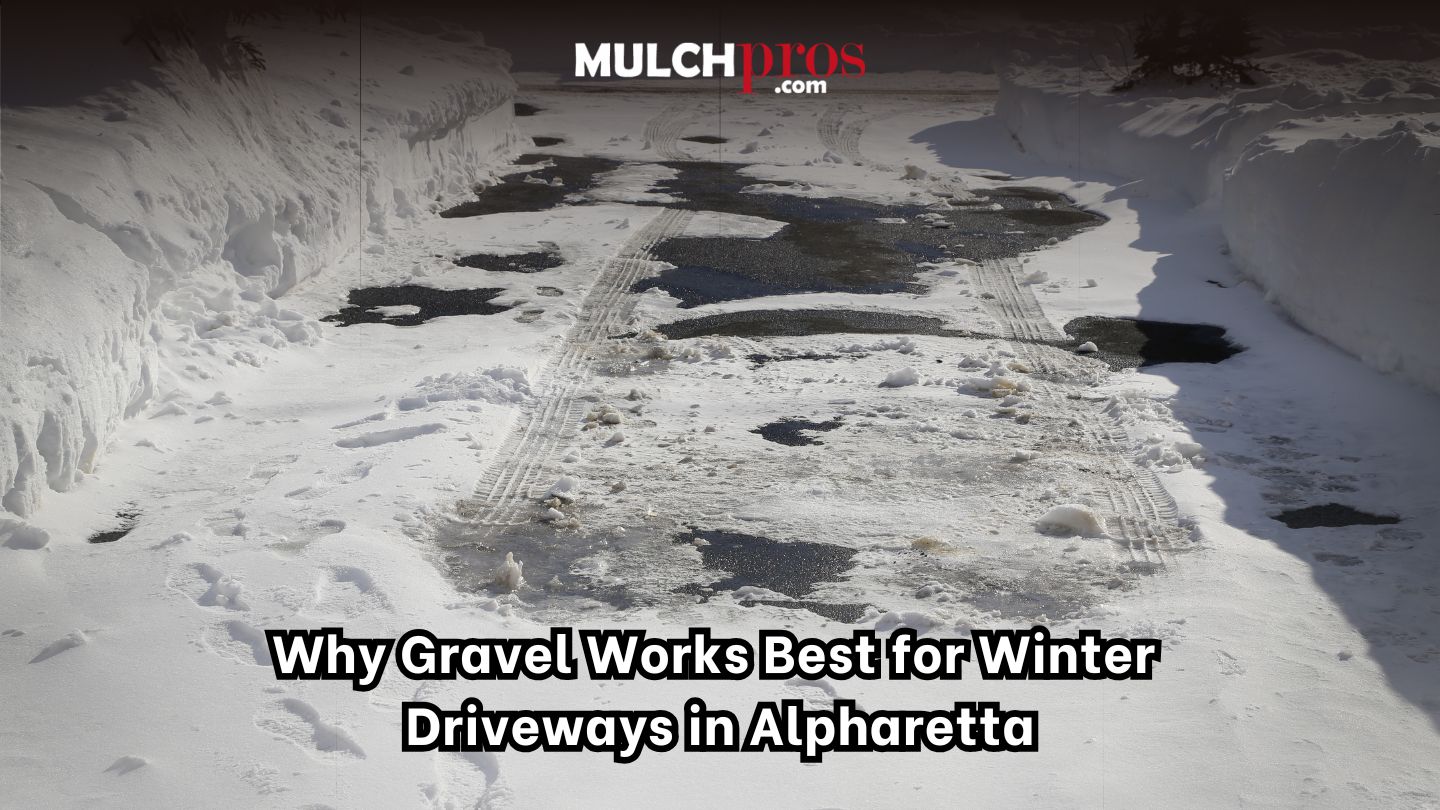Gravel works best for winter driveways in Alpharetta because it’s durable and provides great traction in cold, icy conditions. In this blog, you’ll learn why gravel works best for winter driveways in Alpharetta, compare it with other materials, and get practical tips for installation and maintenance from your go-to source for reliable driveway solutions.
Key Takeaways
- Gravel driveways are ideal for winter conditions in Alpharetta due to their flexibility, durability, and excellent drainage capabilities, which help minimize ice formation and damage.
- Choosing gravel over other materials like asphalt or concrete offers significant cost savings, lower maintenance needs, and improved safety from slipping in icy conditions.
- Proper installation and regular maintenance are essential for maximizing the longevity and performance of gravel driveways, ensuring they withstand winter weather challenges.
Importance of Driveway Material in Winter
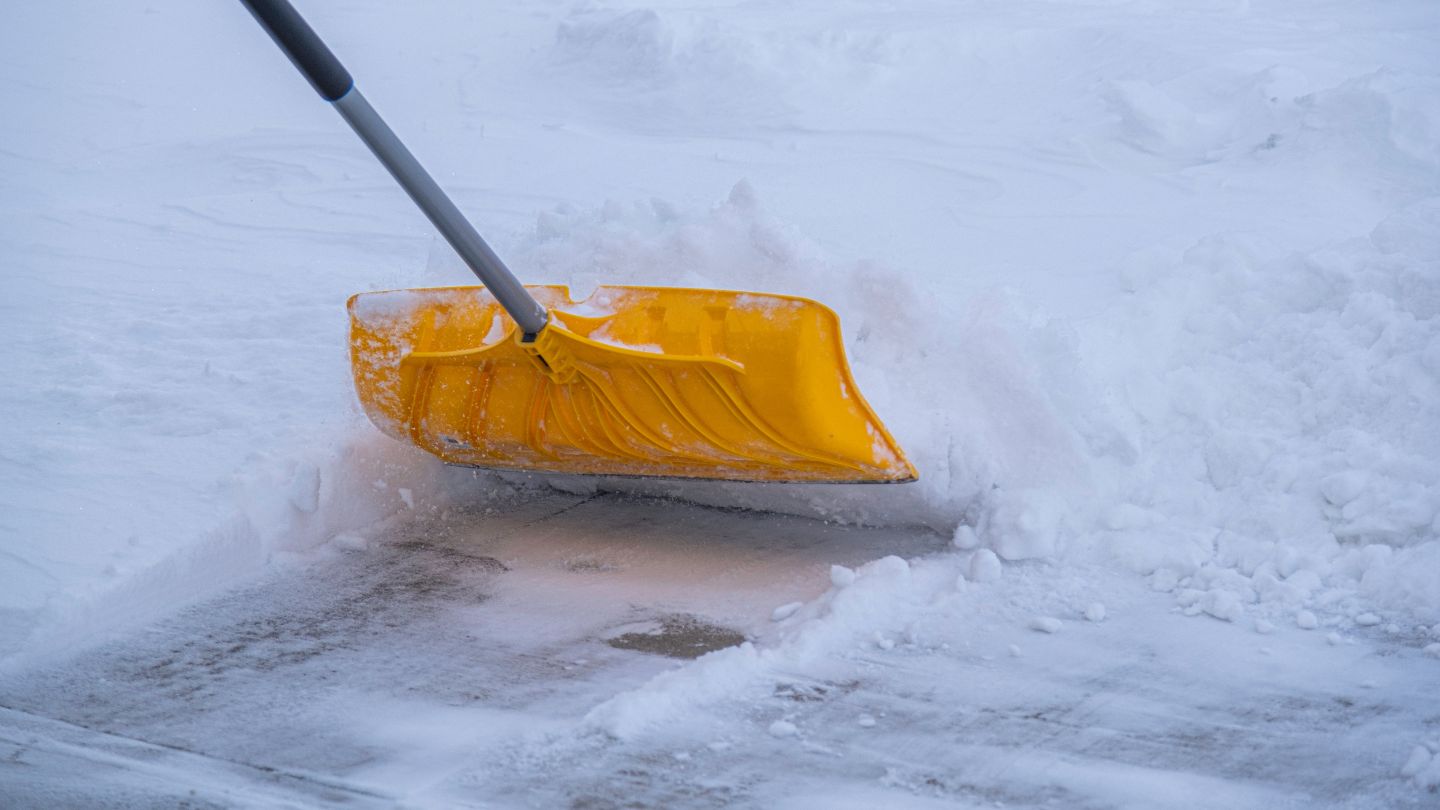
The winter season in areas like Alpharetta and the broader North Georgia region is known for being mild, but recent climate trends suggest that it can also be erratic. Given this unpredictability, selecting a driveway material resistant to cold weather damage is imperative. Inadequate materials may lead to issues such as cracking or spalling on driveways, which could necessitate costly repairs while posing safety hazards.
It’s crucial to opt for a driveway material capable of coping with the challenges posed by winter conditions—resisting not just low temperatures but also exposure to snow and ice. Opting for an appropriate material helps ensure your driveway remains durable over time and minimizes the frequency of required maintenance.
During the colder months, safety becomes even more pressing due to concerns about slips or falls. Choosing a suitable driveway surface enhances traction, contributing positively to keeping your property safely accessible amid severe weather. Taking care to invest in finding an optimal choice will offer longevity for your investment plus added assurance through durability under adverse elements.
Benefits of Gravel for Winter Driveways
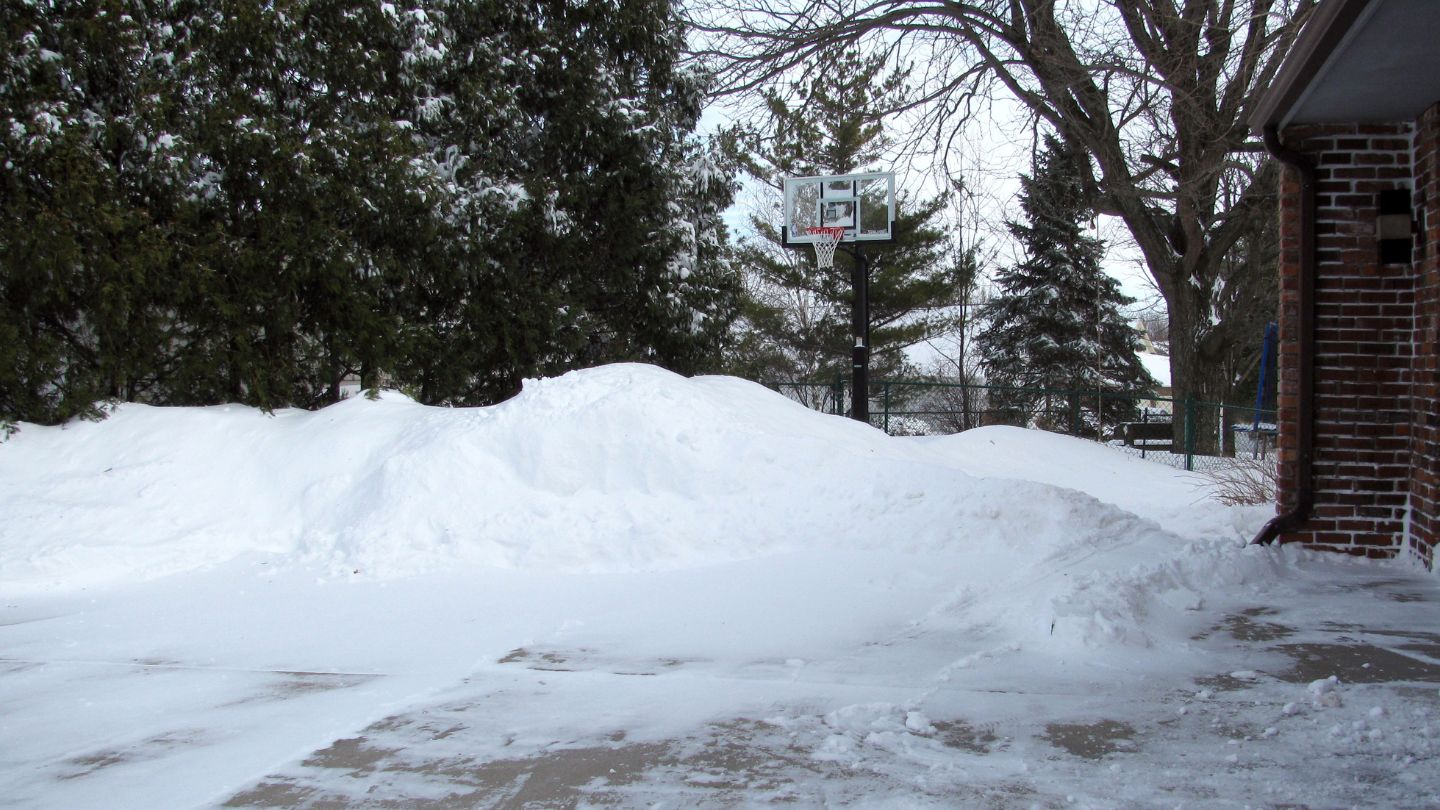
Gravel driveways are notably advantageous, especially during the winter season. Their capacity to adapt and flex with fluctuating temperatures helps prevent damage from freeze-thaw cycles, a common issue that asphalt or concrete surfaces face. Gravel is an excellent choice for regions frequently impacted by snow and ice.
Gravel offers superior traction when it comes to snowy circumstances, drastically lowering the chances of slip-related accidents. This feature becomes particularly important in winter due to the prevalent risk posed by icy conditions.
In light of these advantages, it’s clear why gravel emerges as a top option for driveways during winter months in Alpharetta.
Durability and Cost-Effectiveness
Opting for gravel as the material for your driveway is a financially savvy decision due to its cost efficiency. When compared with other materials used in driveways, such as asphalt or concrete, gravel stands out as an economical alternative that doesn’t sacrifice quality—this is especially advantageous for those with lengthy driveways where the expense can add up.
The resilience of gravel driveways is notable, particularly through harsh winter conditions. They withstand cracking from freeze-thaw cycles—a common issue faced by asphalt and concrete surfaces. Consequently, homeowners favor gravel not only for its affordability but also because it offers durability over time.
Excellent Drainage
Gravel driveways offer superior drainage due to their permeable characteristics, allowing water to effortlessly seep through. This feature stops the accumulation of water on the driveway’s surface and diminishes the likelihood of ice formation when winter arrives. The expedited removal of water helps avoid hazardous icy patches, increasing safety for those who use the driveway.
The capacity for effective drainage also means that standing water is a rarity, which mitigates potential harm from freeze-thaw cycles. Consequently, gravel stands out as a robust material choice capable of withstanding Georgia’s winter climate conditions without incurring significant damage.
Read More: Finding the Optimal Gravel for Drainage Solutions
Easy Maintenance
Many homeowners favor gravel driveways due to their low maintenance needs, presenting a considerable benefit. Routine tasks such as evenly raking the surface and clearing away debris constitute the primary upkeep responsibilities for these driveways. This ease of maintenance positions gravel as an economical choice with respect to long-term care.
The advantage of maintaining gravel surfaces becomes especially apparent during winter months. When compared to solid-surface driveways that may need intricate repairs, managing a gravel driveway is straightforward—merely add fresh material or rake the existing gravel to spread it out properly. Such minimal upkeep contributes to the desire for gravel among those homeowners in search of a resilient and effortlessly maintainable option for their driveway surface.
Comparing Gravel with Other Driveway Materials
In the process of evaluating options for a new driveway, it is critical to weigh gravel against other prevalent materials such as asphalt, concrete, and stone pavers. Due to their affordability and versatility in winter climates, gravel driveways are frequently favored, particularly in rural settings where cost efficiency and straightforward installation are highly valued.
Moving forward, our comparison of driveways made from gravel versus those crafted from asphalt, concrete, and stone pavers will shed light on the pros and cons each offers. This analysis aims to guide you toward a well-informed choice that aligns with your individual requirements and tastes.
Gravel vs. Asphalt Driveways
During the winter months, asphalt driveways are particularly susceptible to damage as the cold weather takes its toll. The presence of moisture within the structure of asphalt that freezes can cause it to expand and subsequently form cracks, which may ultimately shorten its lifespan. As temperatures continue to plummet, these small fissures have the potential to evolve into larger potholes that require expensive repairs.
Gravel driveways offer a stark contrast in terms of how they cope with shifts in temperature and subsequent ground movement. Their inherent flexibility reduces the likelihood of sustaining major damage. With consistent maintenance, gravel surfaces have been known to endure for up to 100 years—positioning them as an economical solution over time when compared with their asphalt counterparts.
During icy weather conditions typical of winter periods, gravel provides enhanced traction, which minimizes slip risks on driveways, which is a safety feature not overlooked by homeowners. This advantage is compounded by lower upkeep expenses associated with gravel surfaces, making them an attractive option vis-à-vis asphalt alternatives for those considering driveway materials.
Gravel vs. Concrete Driveways
Installing concrete driveways typically incurs higher costs compared to gravel ones and necessitates expert installation to guarantee adequate compaction and long-term durability. The installation of concrete is particularly sensitive in cold climates since the mixture tends to cool quickly, which can compromise its overall quality.
In contrast, gravel driveways offer effective natural water drainage, diminishing the likelihood of water accumulation and subsequent ice development. This draining feature renders gravel an advantageous option for winter scenarios by enhancing safety and lessening the demands of exhaustive maintenance.
Gravel vs. Stone Pavers
Stone paver driveways elevate the visual charm, especially when draped in winter’s snowy mantle. Yet, they demand a greater financial outlay and more upkeep than their gravel counterparts.
Opting for gravel provides homeowners with an economical alternative that simplifies maintenance while still offering functional appeal. By choosing diverse varieties of gravel like crushed stone or pea gravel, one can augment both the durability and attractiveness of their driveway.
Read More: Enhance Your Patio With Gravel: Here’s Why It’s a Great Idea
Installation Considerations for Gravel Driveways
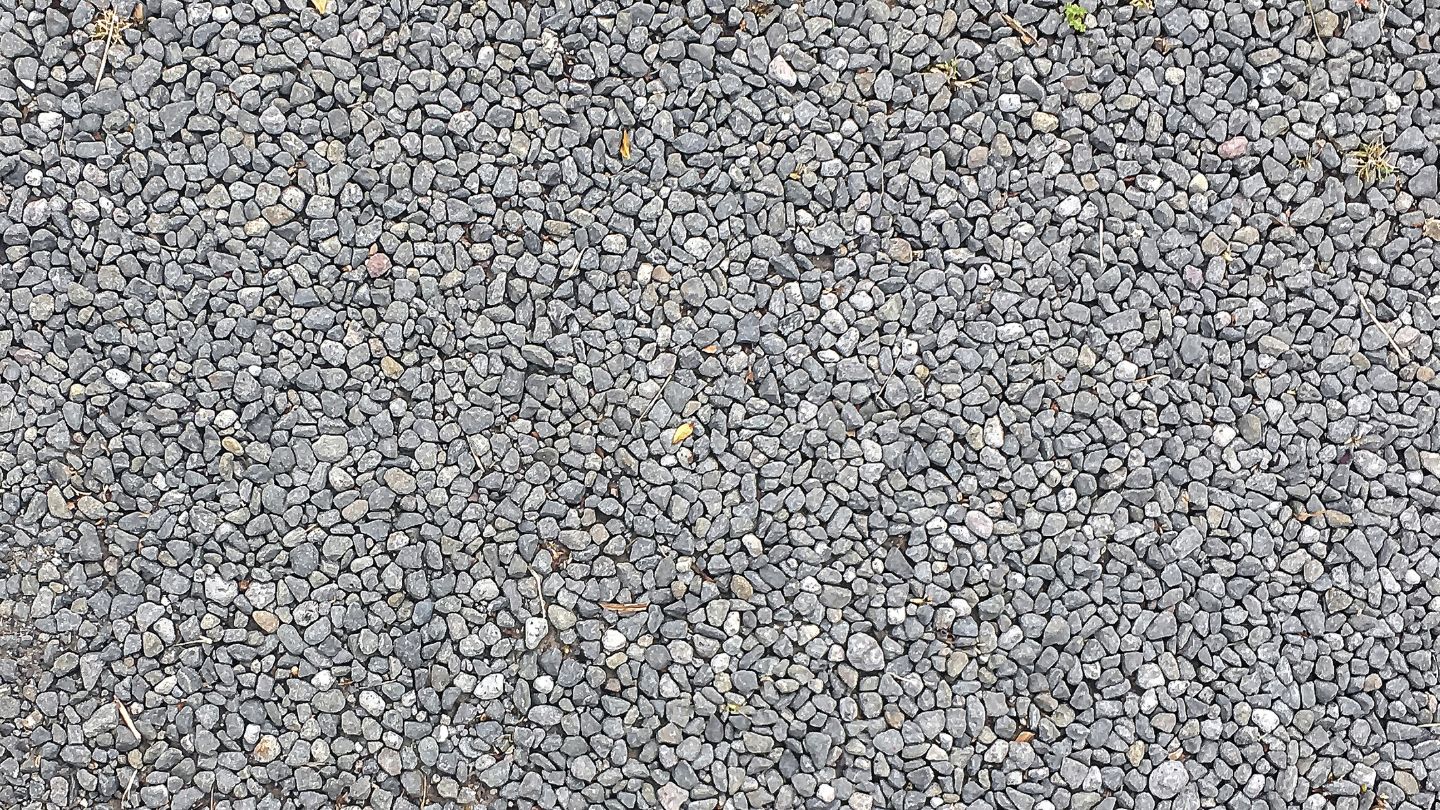
The durability and functionality of gravel driveways hinge on correct installation, which involves a three-layer structure. Before laying each layer, meticulous groundwork is necessary to ensure proper drainage that safeguards against water accumulation and subsequent erosion.
Opting for expert installation or undertaking the project yourself requires knowledge of the critical stages in constructing your driveway with gravel. Grasping these key steps guarantees a reliable driveway that will endure through time.
Preparing the Site
The initial phase of constructing a gravel driveway is the site preparation. This entails clearing away any grass, weeds, debris, and topsoil to establish a pristine surface for the placement of gravel. Clearing away grass is essential to prevent any interference with the gravel layer and to ensure that grass growth does not compromise the driveway’s integrity. The excavation process should reach roughly twelve inches in depth to accommodate adequate space for gravel laying and its subsequent compaction.
Following the digging stage, it’s crucial to thoroughly compact and level out the ground. Such groundwork plays an essential role in averting problems such as erosion or washouts that could weaken the structural soundness of your driveway.
Choosing the Right Gravel
Choosing the appropriate gravel is crucial for ensuring both the longevity and aesthetic quality of your driveway, especially in construction projects where durability is paramount. Driveways crafted from gravel, when combined with permeable pavers, have advantages over conventional stone pavements as they help prevent shifting while improving water runoff.
Promptly addressing erosion problems is vital to preserving the structural soundness of a gravel driveway. Knowledge of material combinations, along with diligent upkeep, are key factors in maintaining an enduring and visually pleasing driveway.
Professional Installation vs. DIY
Homeowners in Alpharetta contemplating the installation of a driveway face a decision between engaging professional services or undertaking the project themselves. The advantage of hiring professionals lies in their expertise and access to specialized equipment, which promotes an efficient and successful installation.
Opting for DIY might seem less expensive initially. The cost of acquiring tools and materials, coupled with possible errors, could increase expenses as time progresses. Entrusting this task to professionals often saves time while ensuring a superior quality finish that tends to offer enhanced durability.
Maintaining Your Gravel Driveway in Winter
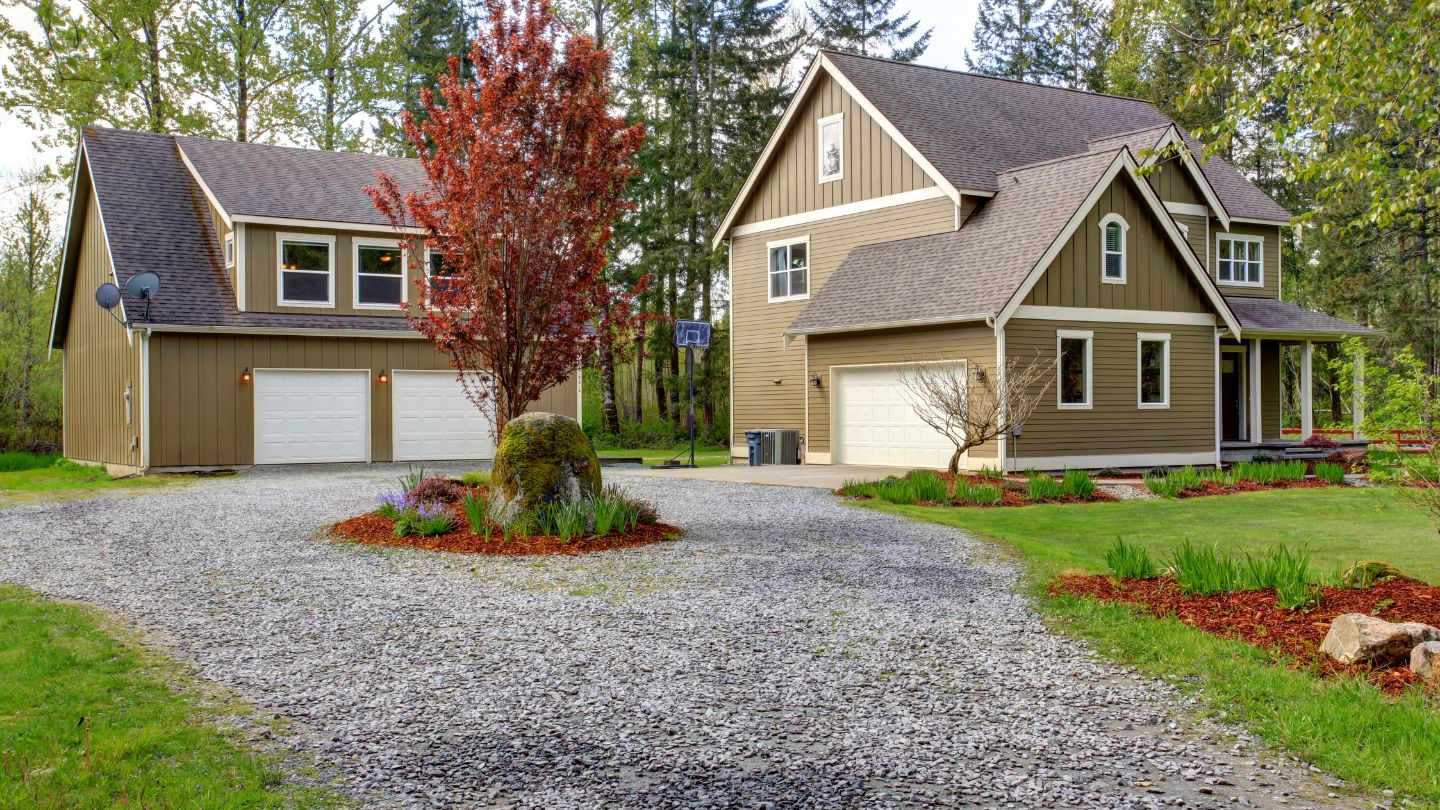
To ensure the safety and durability of a gravel driveway during winter, it is essential to perform consistent maintenance. The act of routine raking aids in preventing the accumulation of debris that could result in the formation of ice patches. Replenishing potholes with new gravel helps to preserve a level surface.
Dealing with snow and ice on gravel driveways can be tricky. Employing appropriate removal methods can alleviate potential problems. By adhering to effective upkeep strategies, your driveway will remain in optimal condition even through the coldest months.
Regular Raking
Routinely raking your gravel driveway is vital for maintaining an even surface, which helps eliminate grooves and prevent the accumulation of water. Consistently using a rake to smooth out the area aids in preventing dips and irregular patches from developing.
Performing this upkeep chore is crucial to ensure that your driveway remains flat and secure, thereby diminishing the likelihood of mishaps resulting from an uneven surface.
Removing Snow and Ice
It is vital to employ correct methods when removing snow and ice to avoid harming the gravel surface of a driveway. By carefully shoveling and raking off snow in gradual layers, you can keep the underlying gravel intact.
Utilizing a snow blower equipped with skid shoes also helps protect your driveway’s gravel from being scattered as you clear away the winter precipitation, helping maintain both its usability and safety throughout the season.
Addressing Erosion and Washouts
During winter, gravel driveways often suffer from erosion and washouts due to water running off the melting snow, which can lead to a loss of gravel. To preserve the structure of the driveway, it is crucial to address these problems swiftly by replenishing it with new gravel and properly rearranging existing materials.
Incorporating drainage systems like ditches or French drains serves as an effective strategy for channeling water away from areas that are at risk, thereby reducing the chances of erosion and washouts occurring.
Sustainability and Environmental Impact
As homeowners become more environmentally conscious, the sustainability and environmental impact of driveway materials have become increasingly important considerations. In this section, we’ll explore the eco-friendly benefits of gravel and discuss ways to reduce your carbon footprint.
Eco-Friendly Benefits of Gravel
Gravel is a popular driveway material that offers several eco-friendly benefits. Here are a few:
- Permeability: Gravel allows rainwater to percolate through the surface, reducing stormwater runoff and filtering out impurities. This helps to prevent erosion and maintain healthy soil.
- Low Maintenance: Gravel driveways require less maintenance than other materials, as they don’t need to be sealed or resurfaced regularly. This reduces the amount of chemicals and materials needed for upkeep.
- Recyclable: Gravel is a recyclable material that can be reused or repurposed at the end of its life cycle.
Reducing Carbon Footprint
In addition to choosing eco-friendly materials like gravel, there are several ways to reduce your carbon footprint when it comes to your driveway:
- Use Locally Sourced Materials: Choosing materials that are sourced locally can reduce transportation emissions and support the local economy.
- Opt for a Smaller Driveway: A smaller driveway requires less material and can help reduce your carbon footprint.
- Consider a Permeable Paver System: Permeable paver systems allow rainwater to percolate through the surface, reducing stormwater runoff and filtering out impurities.
Curb Appeal and Aesthetic Considerations
A well-designed driveway can greatly enhance the curb appeal of your home. In this section, we’ll explore ways to enhance property value and discuss the importance of aesthetics.
Enhancing Property Value
A beautiful driveway can add significant value to your property. Here are a few ways to enhance your driveway’s aesthetic appeal:
- Choose a Visually Appealing Material: Materials like brick, stone, and concrete can add a touch of elegance to your driveway.
- Add Landscaping Features: Incorporating landscaping features like plants, trees, and flowers can help soften the appearance of your driveway and enhance its aesthetic appeal.
- Consider a Decorative Border: A decorative border can add a touch of personality to your driveway and help define its edges.
By considering sustainability, curb appeal, and aesthetic considerations, you can create a driveway that not only functions well but also enhances the beauty and value of your home.
Final Thoughts
Gravel driveways are an ideal choice for Alpharetta homeowners, especially during the winter months. Their cost-effectiveness, durability, and excellent drainage make them a practical and reliable solution compared to alternatives like asphalt or concrete. With proper installation and maintenance, gravel driveways remain functional and visually appealing, no matter the weather.
At Mulch Pros Landscape Supply, we specialize in providing high-quality gravel and reliable services to meet all your landscaping needs. Whether you’re looking to install a new gravel driveway or maintain an existing one, we’re here to help you create a durable and attractive solution that performs well throughout the winter. We are here to help you transform your driveway with the best gravel in Alpharetta so you can enjoy a beautiful, hassle-free entrance to your home. Contact us today to learn more about our materials and services!
We proudly offer our services in Cumming, Johns Creek, Milton, Sandy Springs and Rosewell. Trust us to provide the ideal materials and exceptional service to enhance outdoor projects in these areas.
Frequently Asked Questions
What areas does Mulch Pros Landscape Supply serve?
Mulch Pros Landscape Supply serves Cumming, Alpharetta, Johns Creek, and Milton.
What is the minimum order quantity for delivery from Mulch Pros?
The minimum order quantity for delivery from Mulch Pros is three cubic yards.
How much area does one cubic yard of mulch cover at 3 inches thick?
One cubic yard of mulch covers about 108 square feet when applied at a thickness of 3 inches. This efficient coverage makes it a great choice for various landscaping projects.
How soon can customers expect to receive their delivery?
Customers can expect to receive their delivery on the selected date and time they choose during the mulch ordering process, ensuring flexibility to meet their landscaping needs.
How did a customer from Alpharetta, GA, find the ordering process?
The client in Alpharetta, GA, appreciated the ease of the online ordering system, especially when under time constraints.


